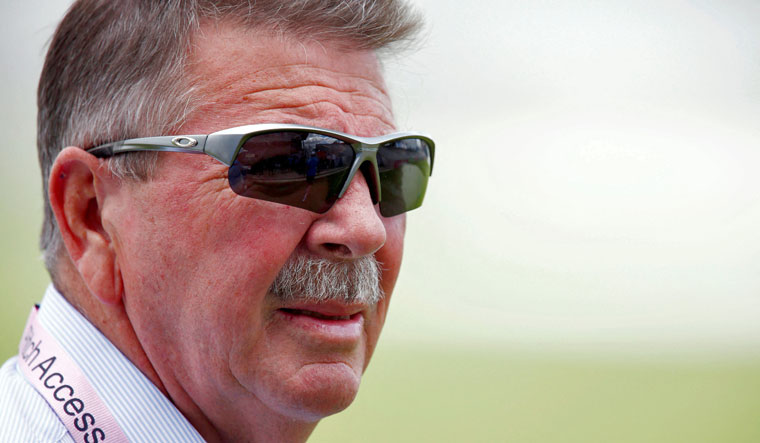With a distinctive moustache, unbuttoned shirt and a baggy green cap like a beacon behind the stumps, the sight of Rod Marsh and the sound of his name pervaded Australian summers in the 1970s and early 80s.
The cricket great, who formed a prolonged and prolific wicket-taking partnership with Australian pace bowler Dennis Lillee, died in an Adelaide hospital on Friday just over a week after having a heart attack during a fundraising event in Queensland state. He was 74.
A stocky and stoic wicketkeeper-batter, Marsh was half of a catchphrase that was synonymous with the era of Test cricket: caught Marsh, bowled Lillee. They combined a record 95 times to dismiss opposition batters in Test cricket.
"This is a tremendously sad day for Australian cricket and for all those who loved and admired Rod Marsh," Cricket Australia chairman Lachlan Henderson said.
also read
"Rod will be forever remembered for the way he played the game and the pleasure he brought crowds as a member of some great Australian teams—'caught Marsh, bowled Lillee' has iconic status in our game."
Marsh and Lillee made their Test debuts in the 1970-71 Ashes series against England and retired after a Test against Pakistan in 1984. Both finished with 355 dismissals, records at the time for a wicketkeeper and for a fast bowler.
Marsh played in the first one-day international on Jan 5, 1971, at the Melbourne Cricket Ground and retired from top-level cricket after his 92nd ODI, against the West Indies in February 1984. He was also involved in World Series Cricket, which polarised international cricket in the late 1970s before revolutionizing the sport for professional players and fans.
A left-handed batter, he was the first Australian wicketkeeper to score a century in Test cricket—against Pakistan at Adelaide in 1972—and finished his career with three. He later led the national cricket academies in Australia and in England and was the inaugural head of the International Cricket Council's world coaching academy in Dubai.
In 2014, he was appointed as Australia's chairman of selectors and held the position for two years.
In a tribute to one of its legendary figures, Cricket Australia said as his career progressed, Marsh became renowned for his athletic takes and sure hands—belying an early nickname of Iron Gloves'—particularly when keeping to the ferocious pace of fellow 70s icons Lillee and Jeff Thomson.
Pat Cummins, captain of the Australian team which planned to wear black armbands in honour of Marsh later Friday to start a three-Test series in Pakistan, described the 96-Test veteran as a colossal figure in Australian cricket who gave close to 50 years of incredible service.
"He was brilliant to deal with because he knew the game inside-out, but also had a way of dealing with you to put you at your ease," Cummins said.
"I grew up hearing the stories of him as a fearless and tough cricketer, but his swashbuckling batting and his brilliance behind the stumps over more than a decade made him one of the all-time greats of our sport, not just in Australia, but globally.
"When I think of Rod, I think of a generous and larger-than-life character who always had a life-loving, positive and relaxed outlook, and his passing leaves a massive void in the Australian cricket community."
International Cricket Council chief executive Geoff Allardice said Marsh, an inaugural inductee of the sport's international Hall of Fame, was a true legend of the game.
"His skill and talent with the gloves was exceptional... but his legacy has gone way beyond what he achieved on the field," Allardice said in a statement.
"He played a significant role in developing young cricketers all around the world, including through his time as the inaugural director of coaching at the ICC Cricket Academy in Dubai, a facility that future generations of players from all countries will continue to benefit from."
The Sport Australia Hall of Fame chairman John Bertrand said Marsh, an inductee in 1985, was tactical, spoke without fear and was a significant figure in cricket folklore.
"He created history," Bertrand said, and was "Respected by all those he played with and against."
Marsh's older brother, Graham, was a professional golfer. One of his three sons, Dan, led Tasmania state to its first title in the domestic first-class Sheffield Shield competition.





